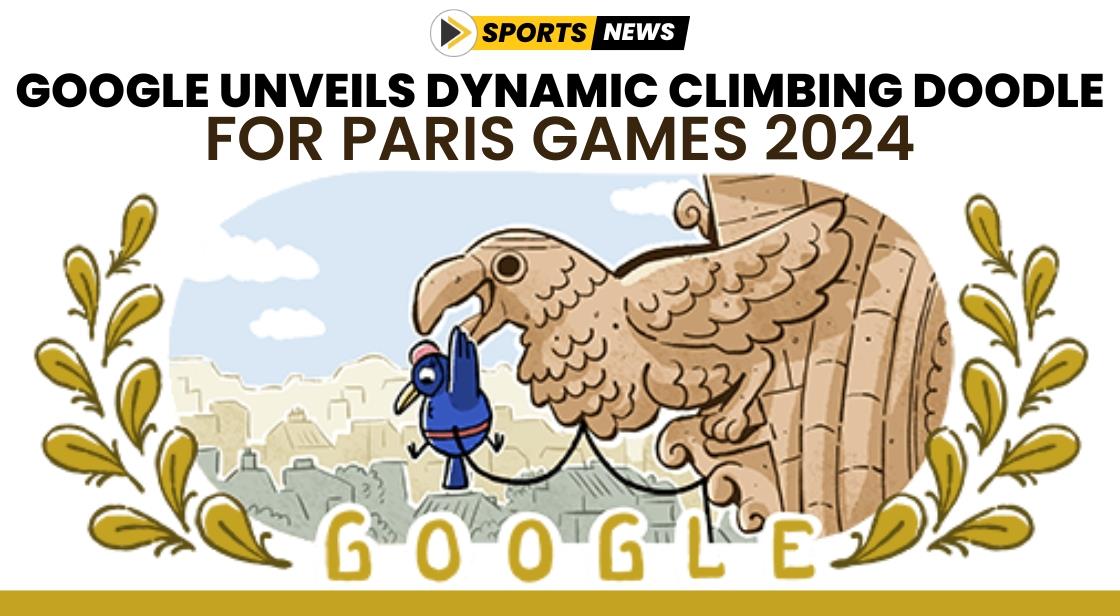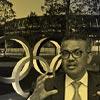Google Unveils Dynamic Climbing Doodle for Paris Games 2024

News Synopsis
Google has marked the Paris Olympics 2024 with a series of captivating Doodles celebrating various sports, and on August 7, it unveiled a unique tribute to Sport Climbing. This Doodle features Google’s iconic Olympics birds scaling a Parisian building adorned with Gothic gargoyles, capturing the sport’s adventurous spirit in a playful and visually striking manner. The sport climbing events, which began on August 5 and run until August 10, are being held at the newly built Le Bourget Sport Climbing Venue in Saint-Denis.
This year’s Olympics have seen significant changes in the climbing competitions, with four distinct medal events introduced, separating boulder-and-lead from speed climbing. These updates address previous criticisms and aim to more accurately reflect the diverse skills involved in climbing. The Google Doodle adds a delightful touch to this year’s Games, highlighting the dynamic nature of sport climbing.
Google’s Latest Doodle: A Tribute to Sport Climbing
Google has been marking the Paris Olympics 2024 with a series of charming Doodles that spotlight various sports featured in this year's Games. On Wednesday, August 7, the tech giant unveiled a unique Doodle celebrating Sport Climbing. The Doodle features Google’s iconic Olympics birds scaling a Parisian building adorned with Gothic gargoyles, depicting a playful yet daring climb.
Sport Climbing at the Paris Games 2024: Event Details
The sport climbing competitions for the 2024 Summer Olympics commenced on August 5 and are scheduled to run until August 10. These events are taking place at the newly constructed Le Bourget Sport Climbing Venue in Saint-Denis, a facility built specifically for the Olympics alongside an aquatic center in the same area.
Evolution of Sport Climbing in the Olympics
This year’s Games mark the return of sport climbing to the Olympic program following its debut at the Tokyo 2020 Games. In Paris, the number of medal events has expanded significantly. The original format of combining boulder and lead climbing with speed climbing has been revised. The competition now includes four distinct medal events—separating boulder-and-lead from speed climbing formats.
Changes in the Competition Format
The changes in the sport climbing events reflect feedback from the Tokyo 2020 Games. Previously, climbers competed in a single combined event for each gender, which led to criticism regarding the scoring system. In response, the International Olympic Committee has restructured the events to include separate medals for boulder-and-lead combined and speed climbing. This adjustment aims to better represent the distinct skills required for each climbing discipline.
Participation and Event Structure
A total of 68 climbers are competing in the Paris Olympics, an increase from the 40 participants in Tokyo. The allocation includes 28 spots for speed climbing and 40 for the boulder-and-lead combined format. Each participating country is allowed to enter up to four climbers, with a maximum of two athletes per gender for each format.
Conclusion
The 2024 Summer Olympics in Paris is showcasing a refined approach to sport climbing, with expanded medal events and increased participation. The changes aim to provide a fairer representation of the diverse skills in climbing, addressing previous criticisms and enhancing the overall competition. The Google Doodle celebrating this sport adds a delightful touch to the global event, highlighting the excitement and charm of sport climbing as it makes its significant return to the Olympic stage.
Olympics History Overview
Origins and Ancient Games
The origins of the Olympic Games can be traced back to ancient Greece, where the first recorded Olympic Games were held in 776 BCE in Olympia. These games were part of a religious festival held in honor of Zeus, the king of the Greek gods. The ancient Olympics featured a range of athletic competitions, including running, wrestling, and chariot racing. Athletes from various Greek city-states competed, and victors were celebrated with olive wreaths.
Revival of the Modern Olympics
The modern Olympic Games were revived in the late 19th century, thanks to the efforts of Pierre de Coubertin, a French educator and historian. Inspired by the ancient Games, de Coubertin sought to create an international sporting event that would promote peace and cooperation among nations. The first modern Olympics were held in Athens, Greece, in 1896, with 13 nations participating in 43 events.
Growth and Global Expansion
Since their revival, the Olympics have grown significantly in size and scope. The Games have expanded to include a wide range of sports and have become a major global event watched by millions. The Olympics are held every four years, alternating between the Summer and Winter Games. The Summer Olympics have been hosted in various cities around the world, including London, Tokyo, and Sydney, while the Winter Games have been held in locations such as Grenoble, Calgary, and Sochi.
The Olympics Today
Today, the Olympics are a major international event featuring thousands of athletes competing in a broad array of sports. The Games are organized by the International Olympic Committee (IOC), which is responsible for overseeing the event and ensuring its adherence to the principles of Olympism, including promoting peace, unity, and excellence. The Olympics have also become a platform for showcasing global talent, cultural exchange, and national pride.
Significant Moments and Controversies
Throughout its history, the Olympics have witnessed many memorable moments and controversies. From Jesse Owens’ triumph in Nazi Germany during the 1936 Berlin Games to the political protests of the 1968 Mexico City Games, the Olympics have often intersected with important social and political issues. The Games continue to evolve, with recent additions such as the introduction of new sports and the inclusion of female athletes in all events, reflecting broader societal changes.
Legacy and Impact
The Olympics leave a lasting legacy in the host cities, often resulting in improved infrastructure, increased tourism, and heightened global visibility. However, the Games also face challenges, including concerns about commercialization, environmental impact, and the displacement of local communities. Despite these challenges, the Olympics remain a powerful symbol of international unity and sporting excellence.
You May Like









